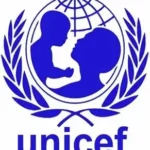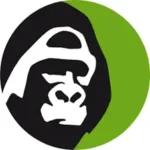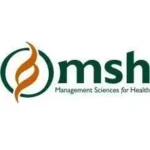National Digital Health Consultant at Unicef | March 2024
Job Description
UNICEF works in some of the world’s toughest places, to reach the world’s most disadvantaged children. To save their lives. To defend their rights. To help them fulfill their potential.
Across 190 countries and territories, we work for every child, everywhere, every day, to build a better world for everyone.
And we never give up.
For every child, Health
systems. Ultimately, the technical assistance provided by the consultants will improve the capacity of the ICT Department of the MOH to strengthen the digital health ecosystem, use digital solutions for quality improvement, and institutionalize the use of client feedback mechanisms. The implementation of these activities is critical to finalize the operationalization of Digital Health Strategy (2020-2025).
The deliverables generated through this consultancy will be primarily used by the Information, Communication and Technology (ICT) Unit of the MOH to steer the direction of the health system digitalization process. Health managers will use the information generated to improve health outcomes, drive health inputs for greater efficiency, and improve the management of the health workforce. Secondary users will include health workers, community health workers and patients as part of the efforts to promote the delivery of quality PHC services.
How can you make a difference?
- Build the capacity of the Information, Communication, and Technology (ICT) Department to promote the proper use and maintenance of the existing digital health platforms (i.e. DHIS-2, Jamii ni Afya, and ZanEMR)
- Update the functionality and disease classification in DHIS-2, ZanEMR, and Jamii ni Afya to enable seamless data exchange integration between these systems.
- Create digital integration pathways for key systems by developing open application programming interfaces to allow any integration with other health information systems.
- Create a user-friendly Executive Data Visualization Dashboard to draw upon selected indicators sourced from the relevant information systems to monitor and intuitively analyse health outcome trends.
- Develop a standardized essential ICT equipment list at all levels including a maintenance and replacement planto promote long-term functionality.
- Design, develop, and roll out a digital supportive supervision solution to enable supervisors across all levels to assess performance, foster motivation, and implement corrective actions.
- Design, develop, and roll a peer exchange collaborative tool to foster a culture of knowledge-sharing among healthcare workers.
- Integrate supportive supervision and peer exchange digital collaborative solutions with DHIS-2 in the spirit of successfully operationalizing the Digital Health Strategy.
- Foster a culture of data use for quality improvement by capacitating Health workers and managers with the skills to extract, analyses, and interpret data from all the improved systems.
- Expand the content of Zan Afya Maoni to accommodate the patients’ experiences with primary health care (PHC) services.
- Integrate Zan Afya Maoni with Jamii ni Afya to boost registration whereby all clients registered by CHWs (COMMUNITY HEALTH WORKERS) will automatically be registered into Afya Zan Maoni for providing feedback.
- Build the capacity of the ICT Department of the MOH to use and maintain Zan Afya Maoni.
| OUTPUT | DELIVERABLE | EXPECTED DATE |
| The digital Health Ecosystem is strengthened. | Quarterly progress report on capacity building of the ICT Department, the updated functionality and disease classification in DHIS-2, ZanEMR and Jamii ni Afya, the creation of digital integration pathways for key systems, and the development of a standardized ICT equipment list | 15/07/2024 |
| The use of digital solutions for quality improvement is enhanced. | Progress report on the design of the peer exchange collaborative digital tool | 15/07/2024 |
| The Digital Health Ecosystem is strengthened. | Quarterly progress report on capacity building of the ICT Department, the updated functionality and disease classification in DHIS-2, ZanEMR, and Jamii ni Afya, the creation of digital integration pathways for key systems, and the development of a standardized ICT equipment list. | 15/10/2024 |
| The use of digital solutions for quality improvement is enhanced | Progress report on the design of the peer exchange collaborative digital tool | 15/10/2024 |
| The digital Health Ecosystem is strengthened | Quarterly progress report on capacity building of the ICT Department, the updated functionality and disease classification in DHIS-2, ZanEMR, and Jamii ni Afya, the creation of digital integration pathways for key systems, and the development of a standardized ICT equipment list. | 15/01/2025 |
| The digital Health Ecosystem is strengthened | Quarterly progress report on capacity building of the ICT Department, the updated functionality and disease classification in DHIS-2, ZanEMR, and Jamii ni Afya, the creation of digital integration pathways for key systems, the development of a standardized ICT equipment list and of the intuitive and user-friendly Executive Data Visualization Dashboard | 15/04/2025 |
| The use of digital solutions for quality improvement is enhanced. | Progress report on the design, development and roll-out of a digital supportive supervision solution. | 15/04/2025 |
| The digital Health Ecosystem is strengthened. | Quarterly progress report on capacity building of the ICT Department, the updated functionality and disease classification in DHIS-2, ZanEMR, and Jamii ni Afya, the creation of digital integration pathways for key systems, the development of a standardized ICT equipment list and of the intuitive and user-friendly Executive Data Visualisation Dashboard | 15/07/2025 |
| The use of digital solutions for quality improvement is enhanced | Progress report on the design, development and roll-out of a digital supportive supervision solution. | 15/7/2025 |
| The Client Feedback Mechanism is institutionalised | Progress update on the expansion of the content of Afya Zan Maoni | 15/7/2025 |
| The digital Health Ecosystem is strengthened | Quarterly progress report on capacity building of the ICT Department, the updated functionality and disease classification in DHIS-2, ZanEMR, and Jamii ni Afya, the creation of digital integration pathways for key systems, the development of a standardised ICT equipment list and of the intuitive and user-friendly Executive Data Visualisation Dashboard | 15/10/2025 |
| The use of digital solutions for quality improvement is enhanced | Progress report on the design, development and roll-out of a digital supportive supervision solution, the update the digital pathways for of the peer exchange collaborative too | 15/10/2025 |
| The Client Feedback Mechanism is institutionalised | Progress update on the expansion of the content of Afya Zan Maoni | 15/10/2025 |
| The digital Health Ecosystem is strengthened | Quarterly progress report on capacity building of the ICT Department, the updated functionality and disease classification in DHIS-2, ZanEMR, and Jamii ni Afya, the creation of digital integration pathways for key systems, the development of a standardised ICT equipment list and of the intuitive and user-friendly Executive Data Visualisation Dashboard | 15/01/2026 |
| The use of digital solutions for quality improvement is enhanced | Progress report on the design, development and roll-out of a digital supportive supervision solution, | 15/01/2026 |
| The use of digital solutions for quality improvement is enhanced | Progress report on the design, development and roll-out of a digital supportive supervision solution, the integration of the solutions with DHIS-2, the use for data for decision making. | 15/04/2026 |
| The use of digital solutions for quality improvement is enhanced | Progress report on the design, development and roll-out of a digital supportive supervision solution and update the digital pathways for the peer exchange collaborative tool, the integration of the solutions with DHIS-2, the use for data for decision making. | 15/07/2026 |
| The Client Feedback Mechanism is institutionalised | Build capacity of the ICT Department of the MOH to use and maintain Afya Zan Maoni | 15/01/2027 |
| The digital Health Ecosystem is strengthened | Quarterly progress report on capacity building of the ICT Department | 30/01/2027 |
To qualify as an advocate for every child you will have…
- Bachelor’s degree in computer science, Information Technology, Business Administration, mathematics, engineering, or related area. Master’s will be an added advantage.
- 10 years progressively responsible professional work experience at national level in software developments and Health systems strengthening.
- Experience in Multiple OS platforms with strong emphasis on Linux (CentOS, Red Hat, Ubuntu), MacOS X, and Windows systems
- Understanding of healthcare processes, workflows, and terminologies.
- Knowledge of healthcare regulations, standards, and compliance requirements.
- Proficiency in programming languages relevant to health information systems (e.g., Java, Python, SQL).
- Knowledge and experience of using OpenHIM, OpenHI, OpenSRP, Open MRS, RapidSMS, RapidProandDHIS2 (District Health Information System2)2 is an asset.
- Experience in setting up and managing SMS gateway and integration of mobile technologies inhealthcare.
- Database design and management skills as well as web development skills for creating user interfaces.
- Familiarity with software development methodologies (e.g., Agile, Scrum).
- Data modelling and database architecture, data quality assurance and validation as well as warehousing and data integration.
- Understanding of health data exchange standards (HL7, FHIR).
- Integration of diverse healthcare systems and data sources.
- Designing intuitive and user-friendly interfaces including usability testing.
- Planning and executing projects related to health information systems.
- Managing the transition from existing systems to new ones.
- Handling resistance to change within healthcare organizations.
- Implementing data analytics tools for health insights.
- Generating meaningful reports for decision-makers.
- Development of mobile health applications.
- Keeping up to date with evolving healthcare technologies and standards.
- Effectively communicating with healthcare professionals and IT teams.
For every Child, you demonstrate…
UNICEF’s values of Care, Respect, Integrity, Trust, Accountability, and Sustainability (CRITAS).
To view our competency framework, please visit here.
UNICEF is here to serve the world’s most disadvantaged children and our global workforce must reflect the diversity of those children. The UNICEF family is committed to include everyone, irrespective of their race/ethnicity, age, disability, gender identity, sexual orientation, religion, nationality, socio-economic background, or any other personal characteristic.
UNICEF offers reasonable accommodation for consultants/individual contractors with disabilities. This may include, for example, accessible software, travel assistance for missions or personal attendants. We encourage you to disclose your disability during your application in case you need reasonable accommodation during the selection process and afterwards in your assignment.
UNICEF has a zero-tolerance policy on conduct that is incompatible with the aims and objectives of the United Nations and UNICEF, including sexual exploitation and abuse, sexual harassment, abuse of authority and discrimination. UNICEF also adheres to strict child safeguarding principles. All selected candidates will be expected to adhere to these standards and principles and will therefore undergo rigorous reference and background checks. Background checks will include the verification of academic credential(s) and employment history. Selected candidates may be required to provide additional information to conduct a background check.
Remarks:
Only shortlisted candidates will be contacted and advance to the next stage of the selection process.
Individuals engaged under a consultancy or individual contract will not be considered “staff members” under the Staff Regulations and Rules of the United Nations and UNICEF’s policies and procedures, and will not be entitled to benefits provided therein (such as leave entitlements and medical insurance coverage). Their conditions of service will be governed by their contract and the General Conditions of Contracts for the Services of Consultants and Individual Contractors. Consultants and individual contractors are responsible for determining their tax liabilities and for the payment of any taxes and/or duties, in accordance with local or other applicable laws.
The selected candidate is solely responsible for ensuring that the visa (applicable) and health insurance required to perform the duties of the contract are valid for the entire period of the contract. Selected candidates are subject to confirmation of fully vaccinated status against SARS-CoV-2 (Covid-19) with a World Health Organization (WHO)-endorsed vaccine, which must be met prior to taking up the assignment. It does not apply to consultants who will work remotely and are not expected to work on or visit UNICEF premises, programme delivery locations or directly interact with communities UNICEF works with, nor to travel to perform functions for UNICEF for the duration of their consultancy contracts.
Advertised: E. Africa Standard Time
Deadline: E. Africa Standard Time





